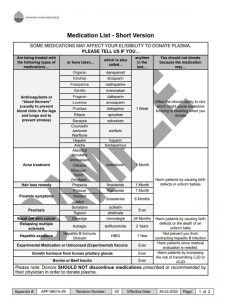

As long as you donate in a certified center, donating plasma is completely safe. Is Donating Plasma Safe?ĭonating plasma is similar to donating blood. If you’re thinking about donating plasma, here’s what you need to know. Plasma helps to stop bleeding during emergency situations. Like donated blood, your plasma is used in trauma situations in hospitals to help those in need. Furthermore, MASAC strongly urges those entities who fractionate recovered plasma to rapidly implement a comparable quality and safety standards certification program.Donating plasma is an important, voluntary act that can help save lives. MASAC strongly encourages all those facilities who collect plasma for fractionation into plasma concentrates to become certified under the IQPP program and those manufacturers who fractionate source plasma to become certified under the QSEAL program. MASAC supports the IQPP and QSEAL certification programs as important ways to ensure that only the highest quality plasma is collected and used for manufacture of plasma-derived clotting factor concentrates. In 2000, the PPTA began QSEAL certification of those plasma fractionators that adhere to these PPTA Voluntary Standards. These standards go beyond what is required by law thus adherence to them is voluntary.

In 1999, the PPTA added a fifth standard, to implement NAT for parvovirus B19 as soon as feasible. These standards include 1) nucleic acid testing (NAT) of source plasma for HIV, HBV, and HCV 2) use of only qualified donors (donors that pass physical and laboratory testing twice) 3) 60-day hold on all plasma to allow for retrieval of any suspect unit and 4) viral marker standards that all source plasma must meet. PPTA originally adopted four voluntary standards related to the collecting, processing, and testing of source plasma for use by PPTA members to manufacture clotting factors. In 1997, the PPTA implemented what is now known as the Quality, Safety, Excellence, Assurance and Leadership (QSEAL) certification program for manufacturers. These standards and objectives includeģ) recruiting of donors from the local community and avoidance of persons with known high risk activities,Ĥ) participation in the PPTA National Donor Deferral Registry (NDDR),

IQPP certification incorporates a number of standards and objectives relating to the quality of a facility's donors and its plasma collection operations. In 1991, the PPTA initiated what is now known as the International Quality Plasma Program (IQPP) certification program for donor collection facilities. The Plasma Protein Therapeutics Association (PPTA) is a worldwide association of manufacturers of products from human plasma such as clotting factor concentrates.


 0 kommentar(er)
0 kommentar(er)
